A year and a half later, nearly 8 million Ukrainian refugees have sought refugee in neighboring countries, almost 6 million of them in Europe. Poland hosts nearly 2.7 million Ukrainian refugees, while other European countries hosting major numbers include the Czech Republic, Bulgaria, Slovakia, Moldova, Romania, and Latvia. The U.S. has welcomed over 100,000 Ukrainian refugees as a major host country outside of Europe.
Additionally, nearly 6 million people are internally displaced within Ukraine, and an estimated 17.6 million people are in need of internal humanitarian assistance. The vast majority of internally displaced persons, mostly women and children, have fled their homes in the east of the country in order to find safety in the west.
The UN predicts that hundreds of thousands will continue to move west to find safety. The conflict situation is fluid, with previously liberated cities coming under indiscriminate shelling, bringing great uncertainty amid escalating tensions.
The purpose of the visit was to ensure the people and churches of Ukraine know that the world is thinking of them, in solidarity, and that they are not alone. ICMC also sought to identify gaps in programming in response to the war in Ukraine from among Catholic Church partners, UN agencies, and other humanitarian actors.
The visit identified needs that were not being addressed or sufficiently addressed within Ukraine, and ICMC has since designed programming with partners to fill those gaps. Among ICMC’s takeaways from the visit was the urgent need for a response to the psychological distress and spiritual suffering of displaced Ukrainians. To accomplish this, ICMC has built relations with local Church partners and other organizations from both the Roman Catholic and Greek Catholic rites. These organizations were often among the first to offer support to displaced people since the first days of the war, but needed external help to respond to the scope of the needs.
In March 2023, Msgr. Vitillo and ICMC’s Ukraine program manager made a second trip to Ukraine, accompanied by the Senior Director, Global Health of the Catholic Health Association of the United States. They visited all projects funded by ICMC at that time, and met with program managers and participants. They also met with members of the local Catholic hierarchy and people whose lives had been devastated by the effects of the war. Through this second trip, they identified new potential projects and expanded partnerships in Ukraine.
Projects funded by ICMC in Ukraine and neighboring countries:
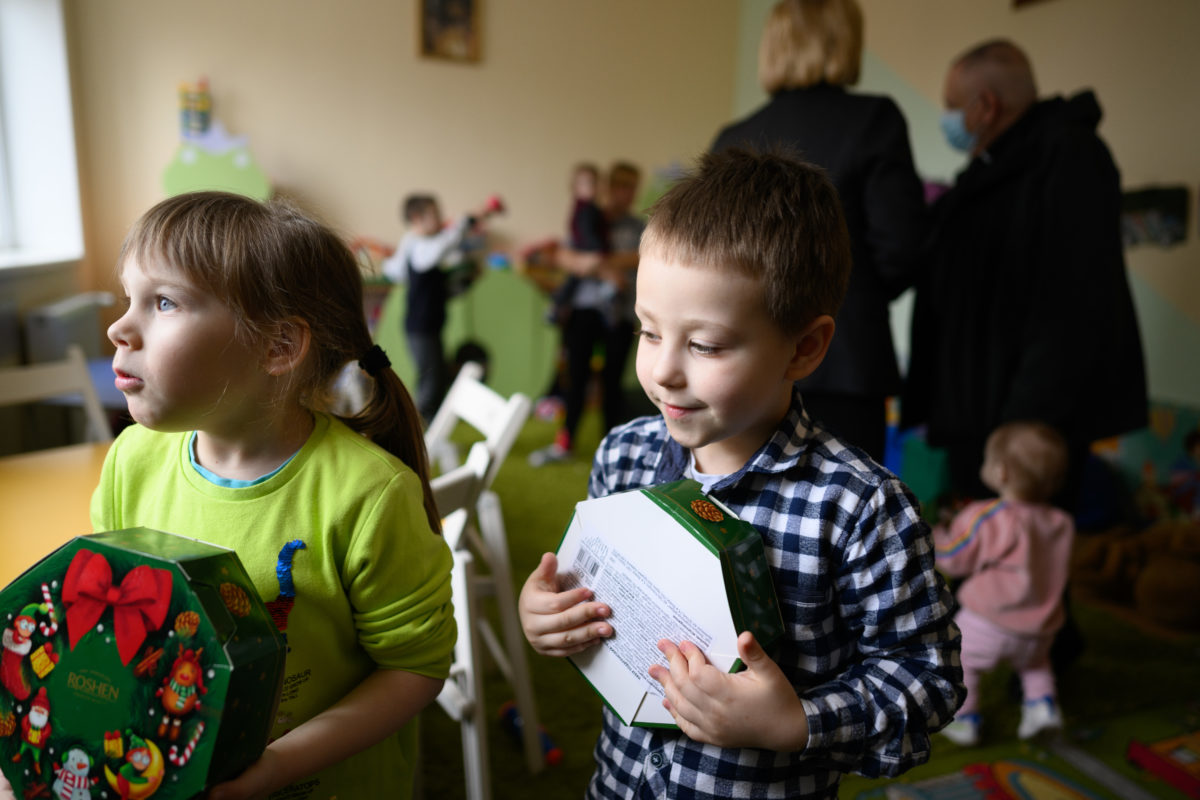
At the St. Nicolas House of Mercy in Lviv, ICMC supports salary payments for psychologists, social workers, and special education teachers. The funding encourages these professionals to continue their employment in Lviv rather than leaving the region or country to seek employment elsewhere, helping to retain their much-needed expertise for the benefit of the local population.
In the Ivano-Frankivsk region of Ukraine, the Knights of Columbus have since 2016 provided psychological rehabilitation treatment for veterans of armed conflict and their spouses. ICMC has funded treatment for veterans and their spouses, which consist of three 4-day workshops in the Carpathian mountains, facilitated by a team of three psychologists and a spiritual director in group and individual settings, with additional physical therapy.
In the town of Ternopil, the local parish was supplying food, medicines, and emergency material support to internally displaced persons. It became quickly apparent that children affected by the conflict needed dedicated psychosocial support.
The Invisible Wounds of War project supports salaries for psychologists and social workers, and has enabled the parish to source Hibuki stuffed dogs to help children develop coping mechanisms for when they feel anxious, scared, or sad. The children soothe the dogs when they themselves feel stressed, which in turn soothes them. ICMC support also covers educational materials and recreational trips for children, and awareness raising for parents.
The National Center for Spiritual and Psychosocial Support is a coordination center for psychological aid and rehabilitation established by Ukrainian Roman Catholic Bishops, which serves as a centralized clearing house for funding, program design, recruitment, and professional training.
ICMC funds salaries for Ukrainian psychologists working with internally displaced persons in five diocesan rehabilitation centers in the dioceses of Lviv and Kamyanets-Podilsky. ICMC support also enables dedicated, specialized training for fifty Ukrainian psychologists and social workers working with internally displaced persons affected by the conflict.
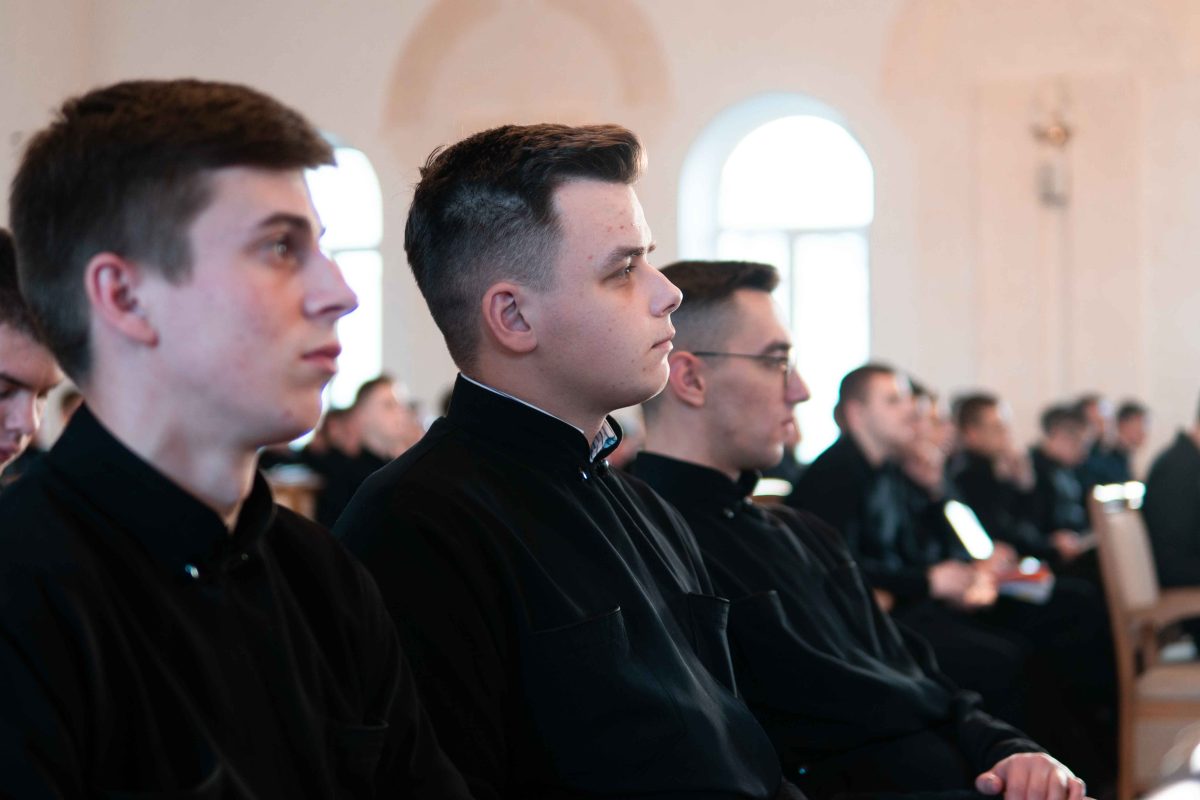
While clergy are trained to offer spiritual support and catechetical answers to complex moral issues, they are not necessarily trained to recognize symptoms of psychological disorders. Training is also required to recognize the limits of pastoral support and the necessity of further referral to mental health professionals.
To strengthen the psychological support capacity of the clergy and enable them to better guide people with major trauma, ICMC is supporting training workshops for priests and seminarians. Delivered by trained psychologists, the workshops take place over a period of one year. ICMC support is further enabling the production of translated guidance for clergy on counseling victims of sexual and gender-based violence, especially women and children who have fled from eastern parts of Ukraine.
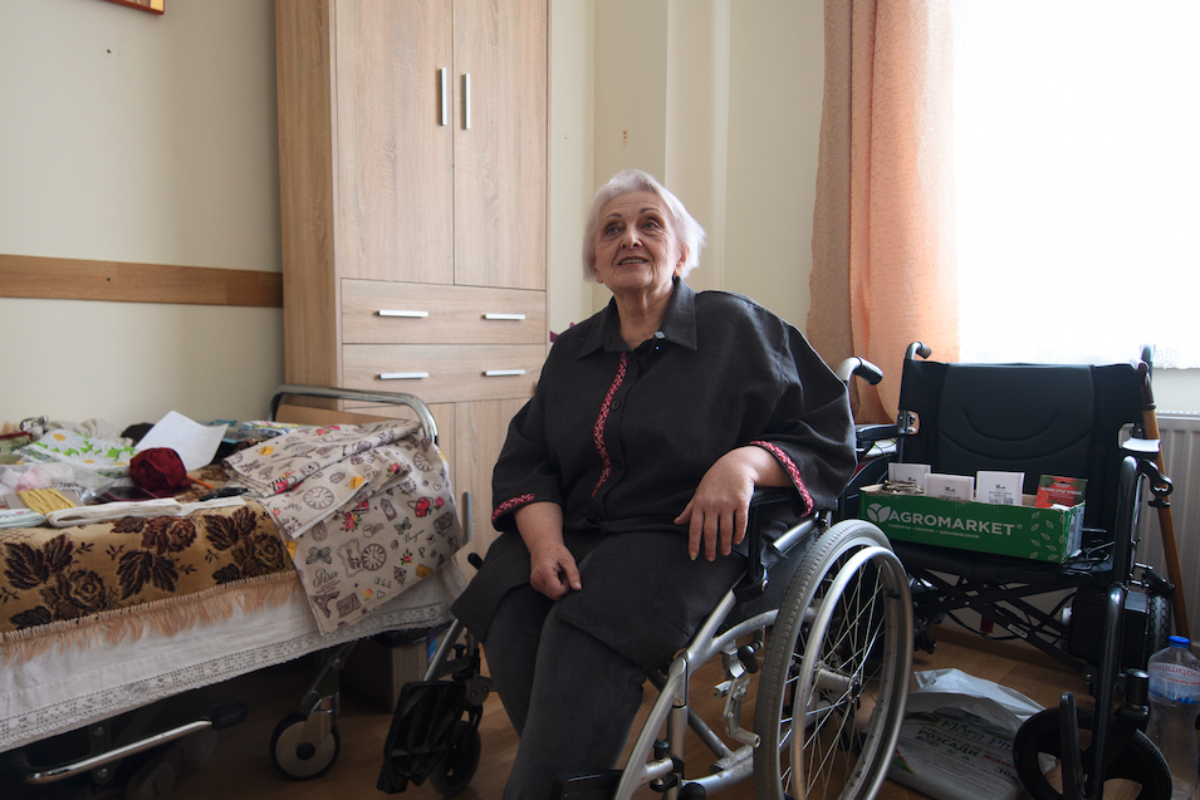
ICMC funding has contributed to purchasing and installing a new heating system and other supplies for a shelter, and upgrading the heating, insulation, and fire alarm systems to provide warm shelter throughout the winter for approximately 100 internally displaced persons.
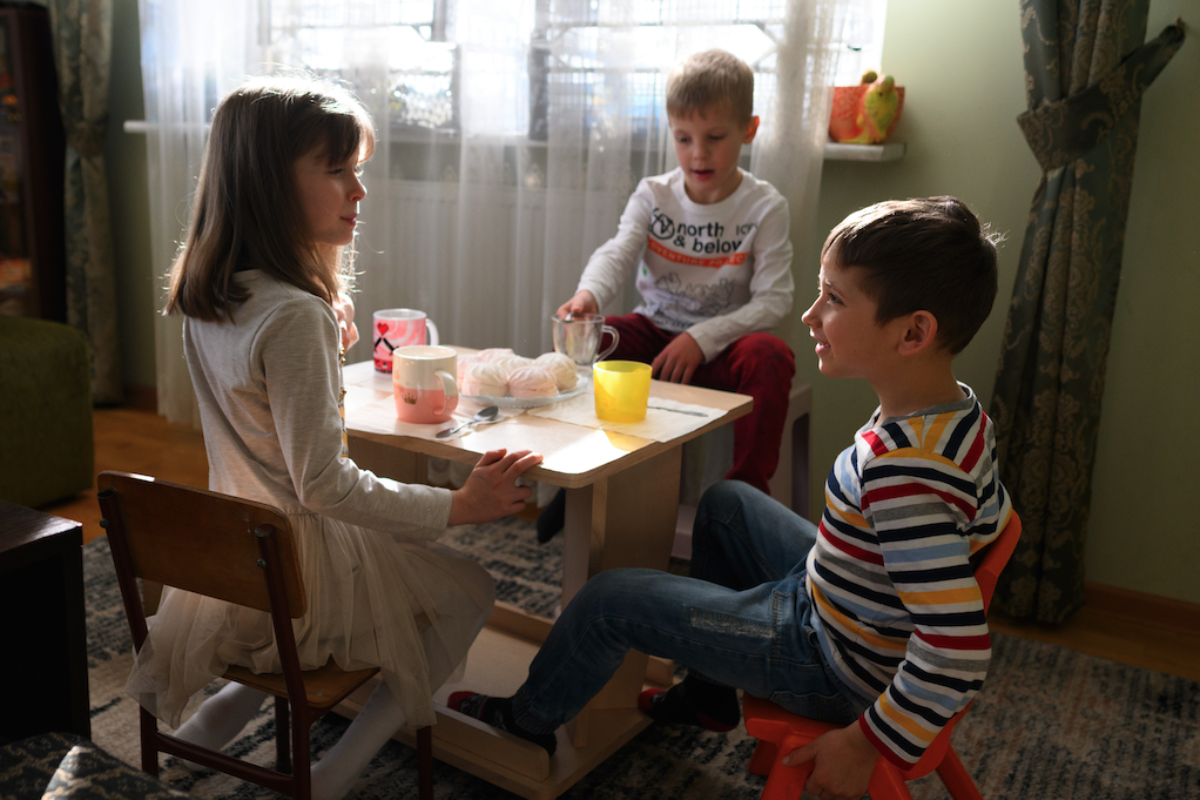
ICMC funding has also enabled the purchase of a smart board for use in teaching children with hearing and learning disabilities.
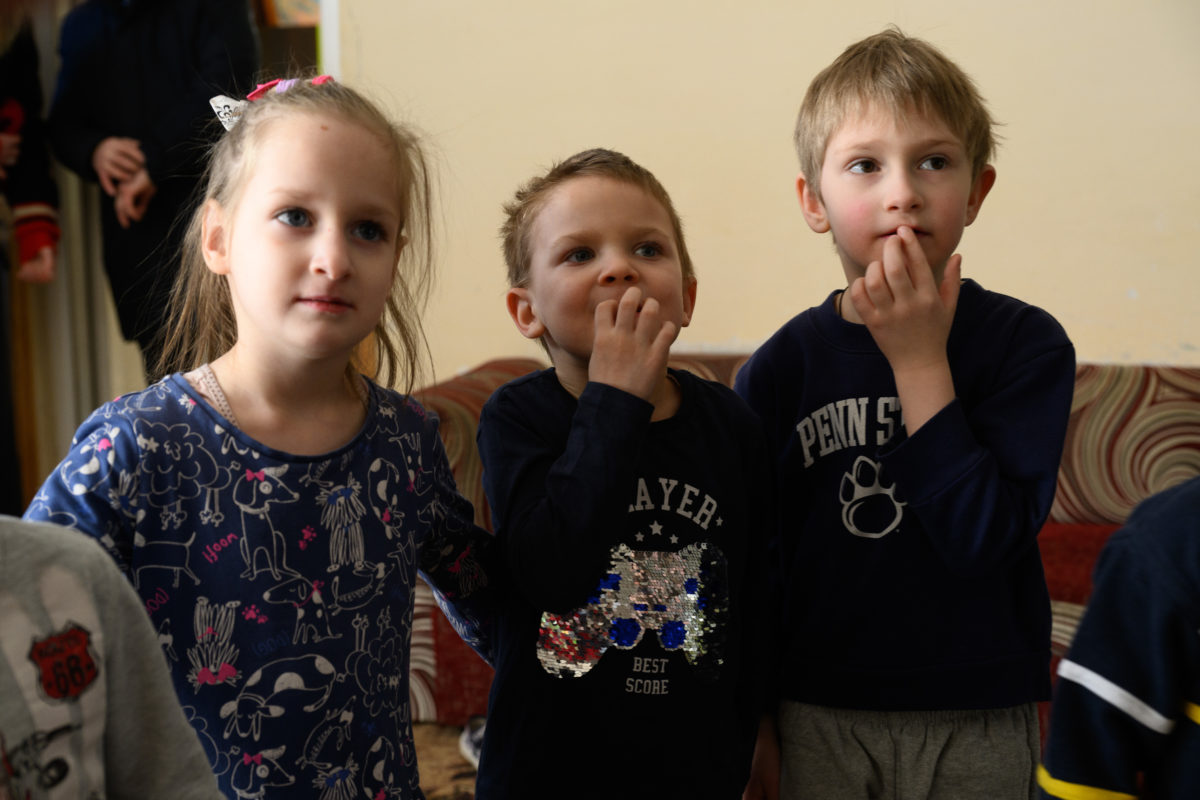
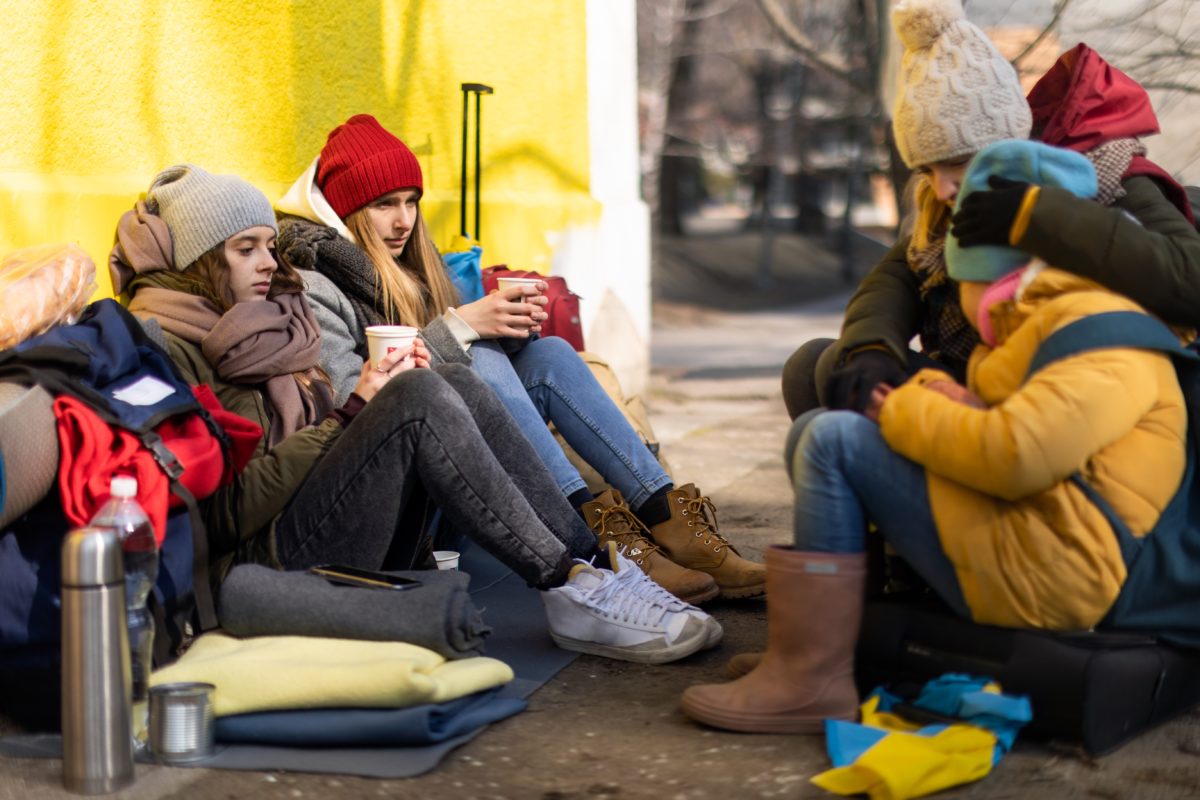
ICMC is supporting Caritas Latvia to provide activities to boost the integration and inclusion of 150 young people from Ukraine in Latvian society. The program includes mental health and psychosocial support and opportunities to meet and share activities with Latvian peers, and the recruitment and training of volunteers to support Ukrainian young people and ensure the program’s long-term sustainability.
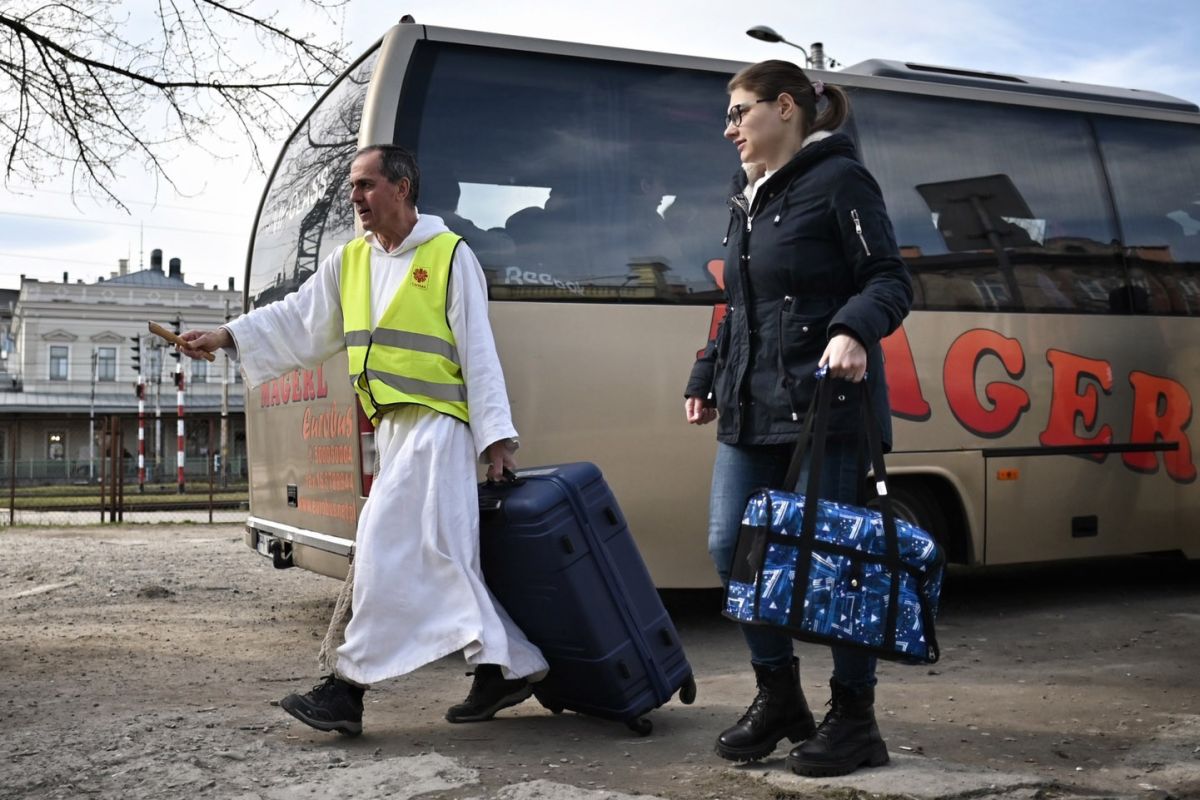
At the encouragement of the Vatican’s Dicastery for Promoting Integral Human Development, in March 2022 ICMC came together with other Catholic-inspired organizations and agencies working in Ukraine and surrounding countries to coordinate the Catholic response to the massive movements of people, both within Ukraine and beyond its borders. Convened by ICMC, the Catholic Response for Ukraine Working Group (CR4U) has since been involved in coordinating the response of various actors on the ground together with global partners.
The CR4U Working Group is comprised of the following members:
- The International Catholic Migration Commission (ICMC), convener of CR4U
- The Migrants and Refugees Section, Dicastery for Promoting Integral Human Development
- Caritas Internationalis
- Caritas Europa
- Jesuit Refugee Service (global)
- Jesuit Refugee Service (Europe office)
The main areas of activity of the working group are information-sharing, advocacy, humanitarian responses, communications, and support to clergy and laypersons who find themselves working as frontline responders on the ground, often with little preparation or respite.
Read more:
Church in Ukraine Training Priests to Offer Trauma Support
Catholic Response for Ukraine Can Serve as Model in Other Crises
ICMC Delegation Visits Ukraine
A Journey to Ukraine – The Humanitarian Crisis and the Catholic Response
